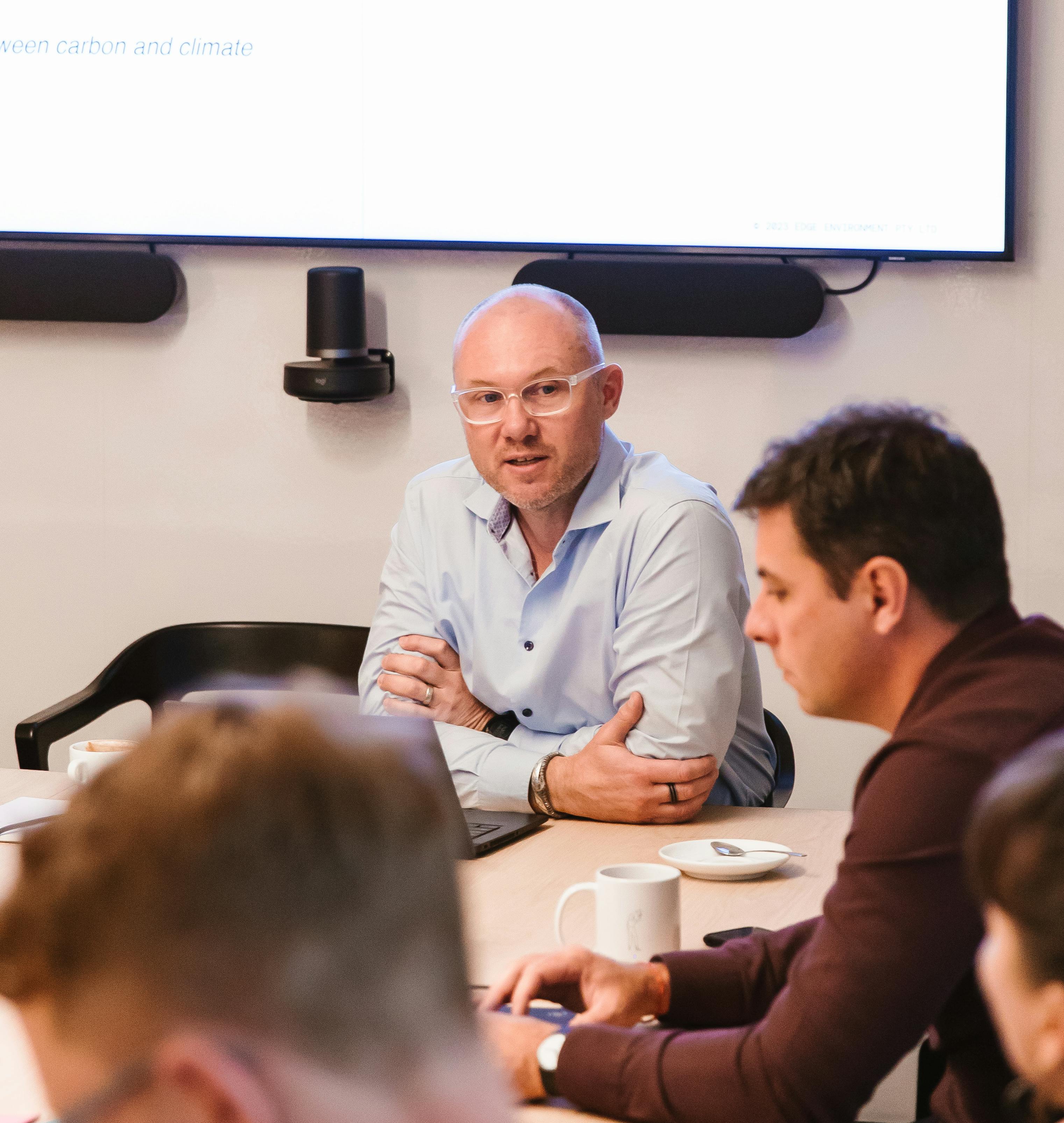
Traditional ESG consulting is evolving - here’s what’s next
Written by Max Van Biene - Global Director of Client Experience
Max Van Biene - Global Director of Client Experience
Let’s call it: traditional ESG consulting has flatlined.
The frameworks have been filed. The reports are gathering dust. The sermons have been delivered and still, the transformation isn’t happening at the scale or speed we need.
So, let’s hold a moment of silence for the cookie-cutter templates and then get to work, because we need to stop preaching and start partnering.
Here’s how we’re reshaping ESG advice at Edge.
If you’ve been in the ESG space for a while, you’ve likely felt it too, the last 12-18 months have been some of the most volatile and challenging of our careers.
Between the introduction of mandatory climate disclosures, tightening budgets, and a political landscape that seems to shift by the week, the ground beneath ESG professionals is anything but stable.
Whether you’re a long-time sustainability lead or someone newly tasked with managing ESG, you’ve probably noticed it’s no longer business as usual.
While some of these pressures may be temporary, there’s no doubt: the way organisations manage ESG risks and opportunities is shifting, and likely for the long term. And this isn’t just anecdotal. I spend most of my working days speaking with individuals managing ESG internally within organisations, and the message is loud and clear:
The type and format of ESG support that organisations need has changed.
What’s equally clear is that, broadly speaking, the ESG advisory sector has been slow to adapt.
We’re increasingly seeing signs of consultant fatigue. Organisations on their second or third ESG advisor because outputs “aren’t the right fit”, consultants are “not speaking our language”, or deliverables feel like “cookie-cutter outputs.”
While this kind of feedback isn’t new, the growing backlash, especially toward the Big Four, is sending a strong message:
The traditional ESG advisory model is no longer fit for purpose.
So, whether you're looking to engage an ESG advisor, or are one yourself, now is the time to reflect.
Not just on how ESG is changing, but how our approach to advisory must change with it.

How the ESG landscape has changed
1. New stakeholders
Mandatory climate disclosures have shifted internal ESG ownership. We're now spending more time with CFOs and finance teams than with sustainability leads.
These stakeholders may have less experience in ESG detail, but they bring high expectations around governance, risk, and financial literacy.
As a result, they expect their advisors to match that. Unfortunately, this shift has also resulted in some highly experienced ESG teams being made redundant as responsibility migrates from sustainability to finance.
2. Tighter budgets
With economic pressure building, ESG budgets are among the first to be cut. Projects are taking longer to get approved, and every dollar of consulting spend is being closely scrutinised.
The era of $200K+ ESG strategy projects is fading fast. What we’re seeing instead is demand for smaller, more agile, bite-sized engagements that deliver value incrementally.
3. Integration over ambition
Rising scrutiny on greenwashing and target feasibility is forcing a rethink. Organisations are shifting away from bold, visionary ESG targets and focusing more on how ESG integrates with core risk, governance, and operations. The priority is no longer setting goals, but embedding practices.
4. Stronger in-house capability
Where in-house ESG teams remain, they’re highly capable and technically literate. These teams want meaningful engagement, not templated reports. The ask is increasingly: “teach us to do it,” rather than “do it for us.” They want to grow their skills, not outsource them.
5. More scrutiny in procurement
With ESG ownership shifting to legal and finance, we’re seeing greater scrutiny over project scoping and contracting. Contract terms are tighter, sign-off times are slower, and the expectation for clarity and accountability is much higher.
These shifts go beyond technical detail.
They’re changing the entire model of how ESG advice needs to be delivered.
At Edge Impact, our priority is delivering real impact alongside our clients while helping them build the internal capability to drive sustainable value.
RELATED ARTICLES




The Edge Round-Up
Get the latest sustainability insights, industry updates, and exclusive invites—straight to your inbox, once a month.
Join the list. Just enter your name and email.

